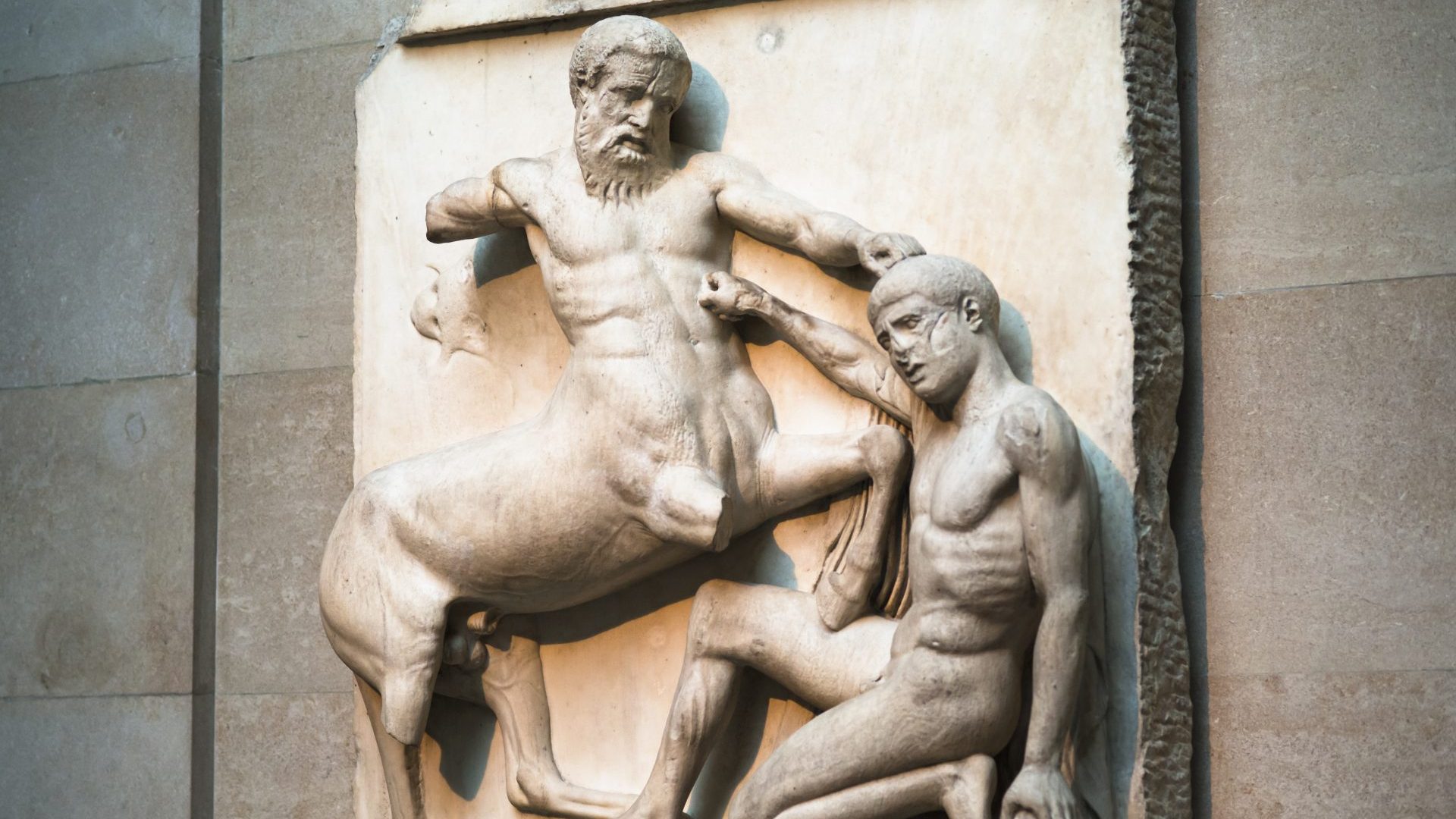I recently posted this on Elon Musk’s hellspace: “Have been asked to speak in defence of #BritishMuseum and #ParthenonFrieze. As long as #GeorgeOsborne (when chancellor the defunder of the BM through austerity) is its head, not for me. He knows that unless parliament passes a new act, the museum cannot restitute the #ParthenonMarbles.”
I was on the board of the British Museum from the early 2000s for eight years. I cannot give you the exact timeline, because, in a sense, time stops there. In a beautiful way. Maybe this is true of all museums, maybe this is why so many are “dead men’s shoes” organisations – you’re in there, somehow for life.
That reality can make you emotional, proprietorial. Objects are in your care. In many museums, only you and a few people see them, care for them.
In the case of the BM, much of the collection is stored, not on the shop floor. So facilities have to be opened; or old ones refurbished. This is what Neil MacGregor, who brought me on to the board, did while he was director of the museum from 2002 to 2015.
His successor, Hartwig Fischer, with whom I worked from about mid-2019 until last year, also did this. He became a colleague and is still my friend. He stepped down as director in August as talk grew over missing or stolen items from the collection.
Both of these guys, Neil and Hartwig, were and are hard workers and big intellects with wide vision.
One thing I have learned about this country, and what still sometimes takes me aback, is how little the average person knows about how the nation actually works. Or how the institutions, which sometimes exist in their collective names, work. Why?
I educate myself. I read the tabloids on a Saturday, because I think I should. I know a place where they are discarded after being read, and I am kindly given them to read and dispose of.
I know that, although I have lived here half my life, there is something fundamental that I still do not know; something that keeps me in that dreaded British appellation of “foreigner”. I don’t mind being there. You learn a lot in that space.
I especially take notice of Boris Johnson’s column in Saturday’s Daily Mail. Which, by the way, has its own dictionary corner to translate his various bons mots for Mail readers.
Johnson once came to the museum, maybe while he was mayor; I don’t recall. There was a big crowd there for him, people were absolutely thrilled. He shambled in, looking as if he had been caught in the wind, and delivered some oration in Greek. Someone next to me mumbled that it was bad Greek, phoney Greek even. This was a British Museum crowd, after all, so you could depend on someone in it to know ancient Greek. The rest of the crowd ate it up.
I watched Johnson like you study a specimen. I wanted to understand his appeal. I think it is something about noblesse oblige; about being a toff (although he isn’t one) that actually thrills many people in this country.
My point about not knowing how the country works is that most people don’t know that the BM is not a private institution. It is part of the state.
The director is a civil servant; their salary has to be signed off by the culture department. The forecourt has a space where police helicopters can land. And it goes on and on. The objects there are held in trust for the people of Great Britain and the world.
The BM is a creature of parliament. Unless parliament decrees or passes an act, the museum cannot, on its own, simply give something back to the country it came from. Parliament has to legislate for it. So the Parthenon Frieze or most anything else cannot be returned, by law. Loaned; toured: yes. Same for the Benin Bronzes.
But this minor fact – about the law, I mean – does not stop people from attacking the museum, instead of petitioning Whitehall. I guess that’s just too much hard work. Not passionate enough, either.
During my time on the board, the British Museum was attacked and, like all cultural institutions, defunded. It was part of a programme of drastic defunding of the entire landscape of broadcasting and the arts in Britain, maybe for ever.
The policy that resulted in this defunding was the 2010 Conservative government’s austerity, and the creator and driver of austerity was George Osborne. Years later, this guy goes ahead and applies to be the head of one of the cultural organisations he defunded, the British Museum. That is 100% chutzpah.
Today he is chair of the board of the British Museum. Elected by the board itself, he is therefore head of the BM.
I won’t repeat what I said when I heard that the board had brought Osborne in when, during my time there, we had been busy trying to keep him at bay. But there is one thing I really hope George is doing: giving the museum a lot of money. A whole lot. It needs it.
His plan now is to spend the next five years digitising the collection so it can be fully accessible online. Of course, this is necessary. But how will it be paid for? How many rich people; corporate types, do you have to wine and dine; schmooze and booze, to do it because the government back in the day decided that the arts were too full of what many Tories still call “luvvies” and had to be “straightened out”? How many #ToriesOut hashtags have to be posted until people understand how this party has decimated the art sector?
Art theft is tragic and tragically common, too. But how do you protect a stored-away collection? Have, as someone said to me, everybody who works there bend over every night before they go home?
There is a lot to say about what the Conservatives have done to broadcasting, too: the BBC, Channel 4, for example. But I don’t think that any of these institutions would invite in to be their head the guy who put them, as the French say, “in the soup”.
My defence of the British Museum still retaining the Parthenon Frieze is quite simply this: obey the law.
Don’t like that? Get the government to change the law. They won’t do it? Then change the government.
Not as passionate and glamorous as a campaign, but guess what? It works.
The British Museum has been a very deep part of me, ever since I was a kid. I loved the place then… and I still do.
I wish all the workers and curators and security guards well.
I will miss them. And the objects. But I’m pretty sure that I’ll never go back.




